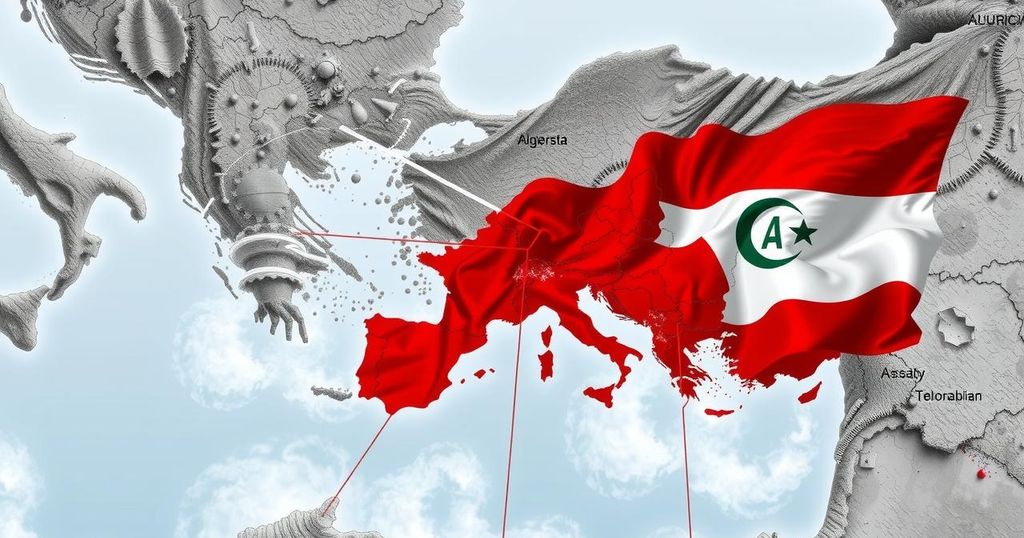After Assad’s Ouster: Russia Shifts Focus to Libya’s Geopolitical Landscape

The article outlines the impact of Bashar al-Assad’s ouster in Syria on Libya’s geopolitical landscape, highlighting Russia’s efforts to reinforce its military presence in Libya through support for Khalifa Haftar. Following Assad’s removal, significant military asset transfers from Syria to Libya have been reported, indicating a strategic pivot. The historical ties between Haftar and Assad’s regime further complicate the situation, amidst Western concerns about growing Russian influence in the region.
The repercussions of Syrian President Bashar al-Assad’s recent ouster are significantly reshaping regional dynamics, extending all the way to Libya. Following Assad’s fall, Russia’s military focus has evidently shifted towards Libya, where it aims to bolster its influence through collaboration with Libyan National Army commander Khalifa Haftar. Reports indicate that Assad loyalists have fled to the eastern Libyan city of Benghazi, marking a considerable increase in both air and maritime traffic between Syria and Libya as Russian military assets are redeployed to establish a stronger presence in the North African nation. Kremlin spokesperson Dmitry Peskov acknowledged ongoing communications between Moscow and Damascus’ rebels, reflecting Russia’s concerns about their diminishing control in Syria. While the situation in Syria remains unstable, Libya, with its vast Mediterranean coastline under Haftar’s command, presents an emerging opportunity for Russia in North Africa. The ties between Haftar and Assad’s regimes, bolstered by their mutual reliance on authoritarian governance and illicit enterprises, indicate a complicated geopolitical maneuvering that could profoundly impact future conflicts in the region. Despite Western apprehensions about Russian entrenchment in Libya, the lack of decisive action underscores the complexities of international intervention in this conflict-prone area. With both Turkish and Russian interests in Libya continuing to clash yet coexist, the strategic landscape will likely evolve as global powers recalibrate their approaches to this volatile region.
The article examines the geopolitical ramifications of Bashar al-Assad’s ouster from power in Syria, focusing on the resulting implications for Libya. Following Assad’s downfall, Russia appears intent on deepening its military and strategic presence in Libya, potentially strengthening Khalifa Haftar’s position amid shifting power dynamics. Russia’s withdrawal from Syria includes transporting military assets to Libya, with implications for naval power in the Mediterranean and surrounding regions. The relationship between Haftar and the Assad regime has historical roots, underpinned by mutual support for authoritarian rule and links to organized crime, factors that complicate Western responses.
The fall of Bashar al-Assad represents more than just a national crisis; it sends shockwaves across the Mediterranean, particularly influencing Libya. As Russia redirects its military efforts towards Libya, it enhances Haftar’s strategic position, despite the recognized risks posed by illicit activities and growing tensions within the region. The interplay of international interests, particularly between Russia and Turkey in Libya, suggests that the geopolitical landscape is poised for further evolution, potentially exacerbating conflicts in neighboring territories.
Original Source: www.france24.com








